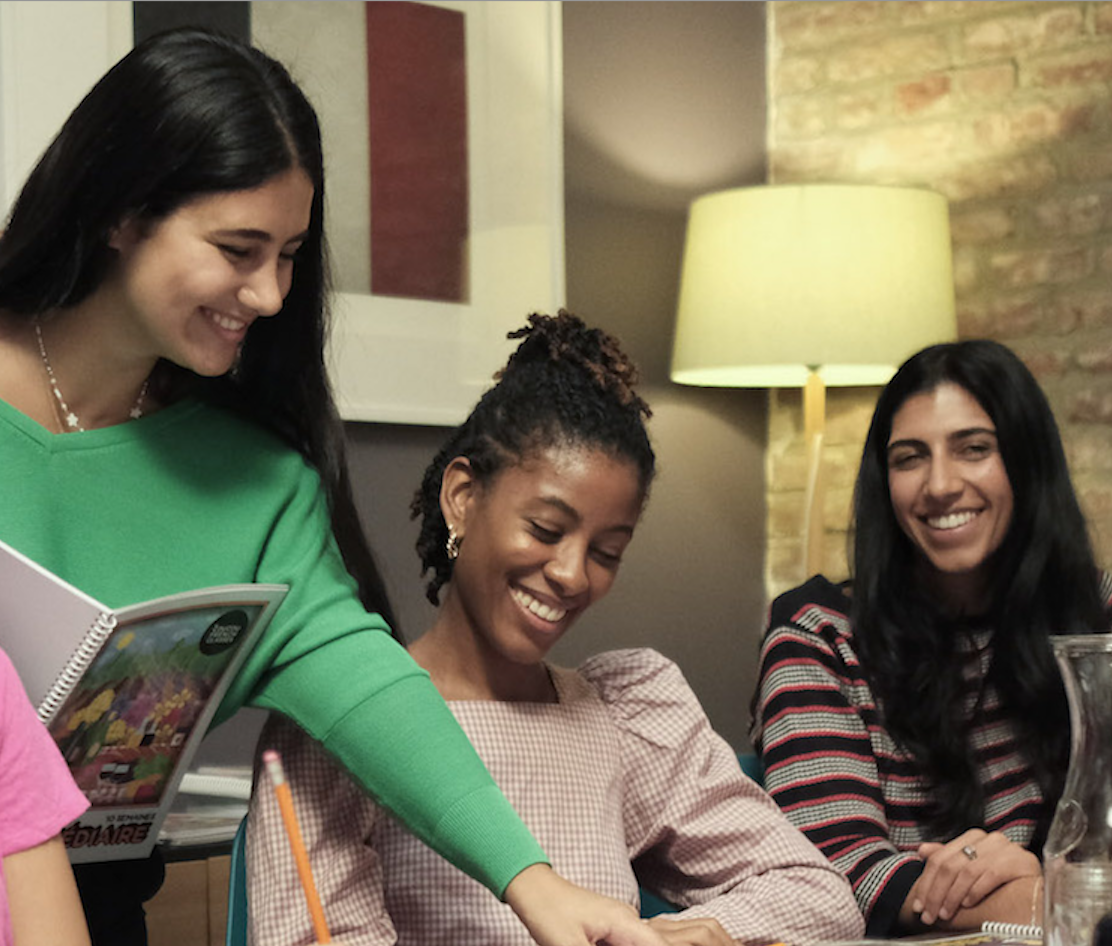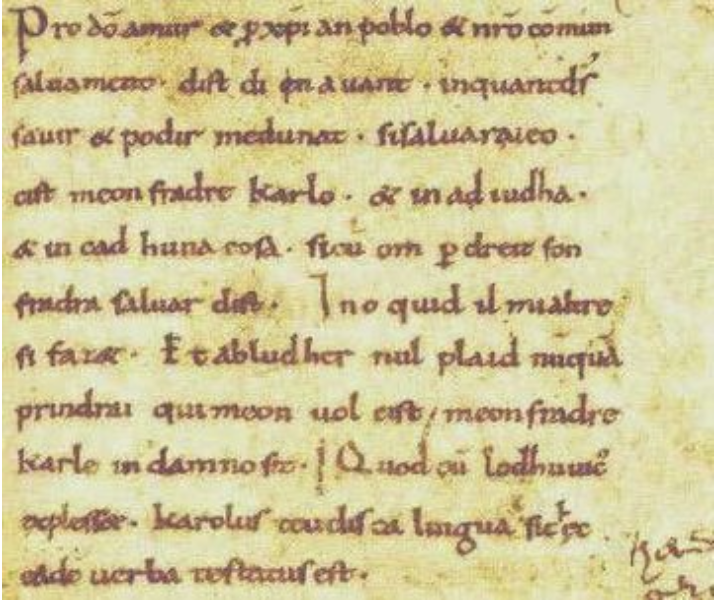Music has a magical way of transcending barriers, and when it comes to learning a new language, it can be an incredibly powerful tool. Understanding lyrics, appreciating the poetic nature of the verses and singing along in your car—or, as the French say, “singing in yogurt” (imitating the sounds you hear regardless of the accuracy to the actual lyrics)—are all super efficient and fun ways to improve your vocabulary and pronunciation skills.
In this first article (part 2 coming soon!), we’re focusing on French ballads. These songs not only allow you to delve into the emotional depths of their stories, giving you a taste of that quintessential French melancholy, but they also provide a more accessible way to hear the language. The slower pace of ballads makes it easier to catch and understand the words. No matter how far along you are in your French journey, let’s dive in and explore the best ballads that will help you master French!
By Melissa Melendez
“Petite Marie” by Francis Cabrel
(PRESENT TENSE)
“Petite Marie” is a love song by Francis Cabrel. It’s a tribute to his wife, Mariette, whom he affectionately calls “Marie.” It was included in Cabrel’s debut album, “Les murs de poussière,” and quickly became a hit, establishing him as a significant figure in French pop and folk music. It is often played on French radio, covered by other artists and is a favorite at Cabrel’s concerts. If you want to see him perform live, he’ll be touring the US and Canada in June! You can get tickets here.
“Petite Marie” contains numerous examples of present-tense verbs, perfect if you’re a level 1 student studying your regular -ER verbs: “Tu brilles à l’extérieur“, “Je parle de toi” or a level 2 student learning your irregular verbs: “Je viens du ciel,” “Je te vois partout.” Here’s how you can make the most of this song: Identify all present tense verbs, practice conjugating these verbs using different pronouns, and create new sentences using similar structures.
Here are some more French ballads to practice the present tense:
- “Tous les garçons et les filles” by Francoise Hardy
- “Mais je t’aime” by Camille Lellouche and Grand Corps Malade
- “Le Grand Amour” by Albin de la Simone
“Mon Amour” by Slimane
(QUESTIONS)
https://www.youtube.com/watch?v=2_wez2egxYw
Slimane, the winner of the fifth season of The Voice France, represented the country at the Eurovision Song Contest just a few weeks ago with his passionate love ballad, “Mon Amour.” His powerful performance of the emotional song earned France an impressive fourth place in the competition! If you’re eager to see him live, Slimane will embark on a world tour in 2025.
“Mon Amour” is not only an easy listen but also easy to understand. If you’re studying questions in level 2, this song is an excellent way to work on the variety of sentence structures you’ll encounter. You get the formal inversion of the subject in “Te souviens-tu de nous ?”, the structure with “est-ce que” in “Est-ce que tu m’aimes ?” and even the casual structure with the question word at the end in “On en fait quoi ?” It’s all there!
Here are some more French ballads to practice with questions:
- “À quoi ça sert ?“ by Françoise Hardy
- “Dis quand reviendras-tu ?” by Barbara
“Qui a tué grand’maman?” by Pomme
(PAST TENSES)
“Qui a tué grand’maman?” is a song originally performed by iconic French singer-songwriter Michel Polnareff (click here for the 1970 version). Despite the seemingly morbid title (literally “Who killed grandma?”), the song explores themes of loss, memory, and the passage of time rather than a literal murder. Pomme included this poetic song on her critically acclaimed album Les Failles (2019). She’s going on a North American tour this summer, it’s your chance to see her live!
Calling all level 3 students eager to practice their past tenses! This song features verbs conjugated in the passé composé (“Le temps a passé,” “qui a tué grand’maman?”) and the imparfait (“Il y avait, du temps de grand’maman,” “Des oiseaux, sur les feuilles, qui chantaient”). Enhance your practice by switching out the conjugated verbs for those that use the auxiliary verb ÊTRE, or challenge yourself by changing the passé composé to the plus-que-parfait!
Here are some more French ballads to practice past tenses:
- “Hier encore” by Charles Aznavour
- “J’ai demandé à la lune” by Indochine
- “Le droit à l’erreur” by Amel Bent
“Ces mots stupides” by Albin de la Simone
(FUTURE TENSE)
“Ces mots stupides” is the French version of the classic song “Something Stupid,” originally performed by Frank and Nancy Sinatra. Albin de la Simone is a renowned French singer-songwriter known for his emotive and introspective music. He often brings a unique touch to his work, characterized by minimalistic arrangements and poignant lyrics. He’ll be playing live in Montreal in June 2024. More info here!
De la Simone uses the future tense throughout the entire song: “Je ne verrai que toi”, “Nous irons prendre un dernier verre”, “je gâcherai tout”. It’s a great opportunity to review your conjugations if you’re in level 4. Make the most of this song by writing an alternate story with the same structure!
Here are some more French ballads to practice future tenses:
- “Tu sais je vais t’aimer” by Henri Salvador
- “Comme d’habitude” by Claude François
- “On brûlera” by Pomme
“Si” by Zaz
(CONDITIONAL MOOD)
“Si” by Zaz, featured on her album “Recto Verso“, delves into hypothetical scenarios and dreams, pondering how life might unfold under different circumstances. The lyrics are optimistic and reflective, encouraging listeners to consider the possibilities of what could be if they dared to dream or change their perspective.
For our level 4 students, mastering “if/then” clauses and the conditional mood requires practice. Fortunately, this song neatly organizes its verses into “SI” clauses using the imparfait, such as “Si je connaissais le bon Dieu” and “Si j’étais reine ou magicienne“, followed by corresponding “THEN” clauses, all expressed in the present conditional mood, like “Je mettrais du ciel en misère” and “je sèmerais des utopies“. Dive into the vocabulary of this poetic piece and challenge yourself by experimenting with different tenses for the if/then clauses!
Here are some more French ballads to practice the conditional mood:
- “S’il suffisait qu’on s’aime” by Céline Dion
- “Et si tu n’existais pas” by Joe Dassin
“Pour que tu m’aimes encore” by Céline Dion
(SUBJUNCTIVE MOOD)
“Pour que tu m’aimes encore” is one of Céline Dion’s most famous French songs. It was released in 1995 as part of her album D’eux (also known as The French Album), which became the best-selling French-language album of all time. The song, written by the famous Jean-Jacques Goldman, is about the desire to rekindle a past love. The lyrics express a deep yearning and willingness to change or do anything to regain a lost lover’s affection.
This song is particularly good for practicing the subjunctive mood, which is used to express wishes, emotions, doubts, and hypothetical situations—as you well know if you’re a level 5 student! It contains numerous examples of subjunctive verbs, such as “pour que tu me retiennes”, “avant que l’on s’attache” and “Il faudrait que tu comprennes”. To practice with this song, you can list the subjunctive triggers like “pour que” in the lyrics and identify the corresponding subjunctive verbs. You can go even further and use the lyrics as inspiration to create new sentences with other verbs in the subjunctive mood. You got this!
Here are some more French ballads to practice the subjunctive mood:
- “Pas toi” by TAL, originally by Jean-Jacques Goldman
- “Que le temps” by Garou
Not sure which level is right for you? Take our placement test!





